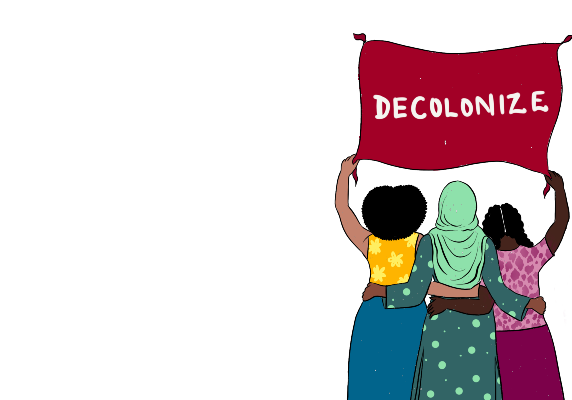Breaking barriers: How paid internships can transform inclusivity in the international development sector
Whose fault is it that the ones most in need, are the ones who get shunted aside?
Helen Turner
Helen Turner’s question in her song ‘If Only’ perfectly echoes the structural inequalities in the international development sector.
Representative of this inequality is an alarming lack of access, with positions in aid organisations remaining largely exclusionary, from senior staff all the way down to interns.
This is an issue that Helen felt particularly passionate about. Helen had faced difficulty in getting a start in international development, but after years of hard work she earned an opportunity through BRAC. While visiting a project in Nepal in 2019, Helen sadly passed away. Alongside her family, BRAC launched the Helen Turner International Development internship in her memory to increase access into the sector.
The lack of accessibility in the sector is worsened by the common practice of unpaid internships. This is against the ethical foundations that make the development sector so impactful, and when an industry built on reaching Social Development Goals that champion inclusivity, accessibility, and equality cannot claim the advancement of these tenets within its own workforce, there is a deeper problem.
As Helen, I and many others have found, if you are unable to take a full-time, unpaid position, entry into the sector often remains elusive. With London as the ‘centre of development’ in the UK, boasting the largest abundance of aid organisations and receiving almost a third of the total funding from independent trusts and foundations in 2019 compared to the 5% received by Midlands charities, the importance of pushing for inclusivity in this region is clear.
Despite this, unpaid internships are still common, and when the average living cost ranges between £1500 and £3000, this option remains available to only a select few. Moving beyond internship standards, this problem becomes even more concerning, with recent statistics by the National Council of Voluntary Organisations highlighting that only 9% of charity sector staff were from Black, Asian and Minority Ethnic backgrounds. In practice this results in, as The International Rescue Committee have highlighted, a stark division between a frontline that is primarily staffed by women of colour, and a senior leadership team that is overwhelmingly white, over 90% according to an Inclusive Board review of the 500 largest charities.
With this industry failing in mind, BRAC has sought to address the issue of accessibility through the paid Helen Turner International Development Internship. This internship is not only unique in the way that it promotes inclusivity, but also in how it is structured. My internship at BRAC has allowed me to experience how a leading NGO functions. With London’s cost of living soaring, an unpaid internship was not an option for me, barring me from my aspirations of working in the international development sector. Paying above London Living Wage, the Helen Turner Internship has given me the opportunity to start a career in development without having to work a full-time job alongside a full-time internship. More organisations need to provide a pathway to entry that is fairly paid and clearly valued, as BRAC has done for me.
The focus that BRAC places on disability-inclusive development programs is an aspect of the organisation that I find extremely valuable. Having personally struggled with disability, specifically knowing how disruptive it can be for your education, contributing to work that helps mitigate the challenges people with disabilities face across Asia and Africa is an opportunity that has been both incredibly impactful and deeply inspiring for my future career.
During my post-graduate research, I focused heavily on the importance of locally led, human-centred approaches, often finding that this was not taken seriously by international actors. Working at BRAC has not only proven to me that this model works, but has shown how it can be effectively implemented throughout the globe.
Seeing BRAC’s work with local communities, and especially women as agents of change, has been an eye-opening experience. As internships serve to provide an entry point for those with less formal experience, this structure is incredibly beneficial for developing a comprehensive understanding of how an NGO operates, and helps to narrow down my personal areas of interests moving forward.
Working with the partnerships team was particularly valuable, especially playing an active role in proposal writing and undertaking prospective donor research. My time spent with communications and advocacy was also particularly notable, as I was given the chance to submit evidence to a parliamentary enquiry, and assist in the coordination of an advocacy event at the 2023 Labour Party annual conference.
Potentially the most impactful part of this internship was being able to work with the BRAC UK team. Being surrounded by such experienced, driven, and talented people pushed me to fully apply myself during this internship. My time with BRAC UK has been an invaluable learning experience, and each member of this exceptional team has taught me something that I will carry with me into my career.
The Helen Turner International Development Internship is a small step towards building a more accountable and inclusive sector, and should become the norm for international development internships. If more organisations offered paid opportunities like that of BRAC UK, the sector would undoubtedly take strides in improving its inclusivity problem.
Category
News & Views



